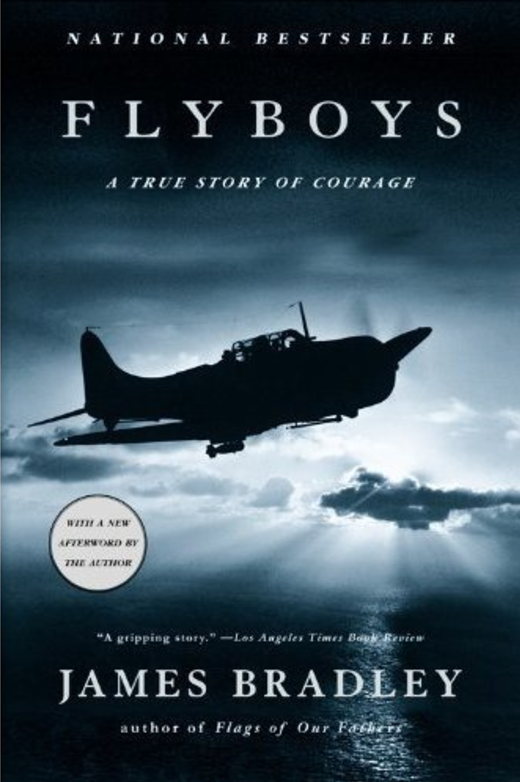
Rating – Three Stars
As usual, my simple mind is confused. I do not know what to make of this book. It’s not a history of naval aviation in World War II, and it’s not a personal memorial to all the lost fliers “that did not return” to their aircraft carriers. It is a salmagundi of stories of naval aviators mostly dying. It’s a compendium of personal insights into naval aviators—officers and enlisted men that did not return—mostly.
Aside: Bradley’s use of “boys” throughout the text is an abomination and insult to the men of naval aviation who fought the good fight in the Pacific Campaign—many of whom did not return. I was in naval aviation for my entire career in the United States Navy. Prejudice against such disrespect is entrenched in me.
Also, to my amazement, Bradley fashioned the Japanese soldiers as “boys.” They were men.
Bradley rants pointedly about the USA’s eeevil colonialism in the Philippines and the diabolical war we waged on the populace—the slaughter of innocent civilians, internment camps, and the scorched-earth policy. I wonder what this screed contributed to Flyboys—perhaps only that war is Hell.
His detailed account of the Doolittle Raiders’ bombing of Japan on 18 April 1942 is compelling.
Bradley gets credit for his excellent research. His exposition of the Japanese army’s training, discipline, and inexorable top-down chain of command is keenly informative and explains, in large measure, the inability of the on-scene commanders and their subordinates to make any decision of import without approval from the senior military clique in Tokyo—the “Spirit Warriors.” Of particular note is his explanation of their total disregard for the lives of their men. They sent soldiers to isolated islands. Their orders were to kill the American devils and to die for the Emperor. Surrender or failure to die was dishonorable and brought shame to their families. It was the Bushido code updated for the Pacific War.
Here’s one example. Japanese high command sent 130,000 troops to the island of New Guinea. After our navy’s victory in the battle of the Bismarck Sea, the Japanese soldiers were trapped. No supplies could reach them and there was no escape. The high command lacked concern—it was the vagaries of war and these men would die an honorable death. Nonetheless, the soldiers fought the Australian and American forces until almost all of the Japanese were dead—either killed or dead of disease and starvation. It’s in this story that Bradley tells us how the starving Japanese soldiers killed their own to keep from starving to death.
Bradley’s writing style is easy, fluid, and empathetic. And, that’s part of the problem with his book—it’s too empathetic, too vivid. We become immersed in his stories—we are at the location witnessing the details of the hideous torture, barbaric assassination, and gruesome cannibalism of our naval aviators. We attend the Japanese officers’ dining table to share the thigh of an enlisted gunner’s mate. Naturally, the reigning general has first pick.
Flyboys is a book suffused with death, torture, and cannibalism. I reckon that these horrors happened, but Bradley doesn’t have to be so dammed graphic about the details. This is not a book for the squeamish, the prudish, or the honorable warrior—in fact, I feel it’s a book solely for the Judge Advocate Generals.
My heart is greatly troubled by Bradley’s narrative. I regret having read his book. I’ve not slept well these past few nights. His images are too powerful. Flyboys is too personal, too engaging. I don’t want to witness the ignominious fate of my shipmates.
Note: Many of these Japanese criminals were convicted of crimes and hung from the gallows.
I have to admit, having read other books by Bradley, I was engrossed in the stories. I did not find the term ‘boys’ as distasteful as you, since many generals call their soldiers by that term. My father during WWII found it complimentary when his General Swing said it, because Smitty was basically about 10 years older than the other paratroopers, having been born in 1914.
But I can see the points you made here.